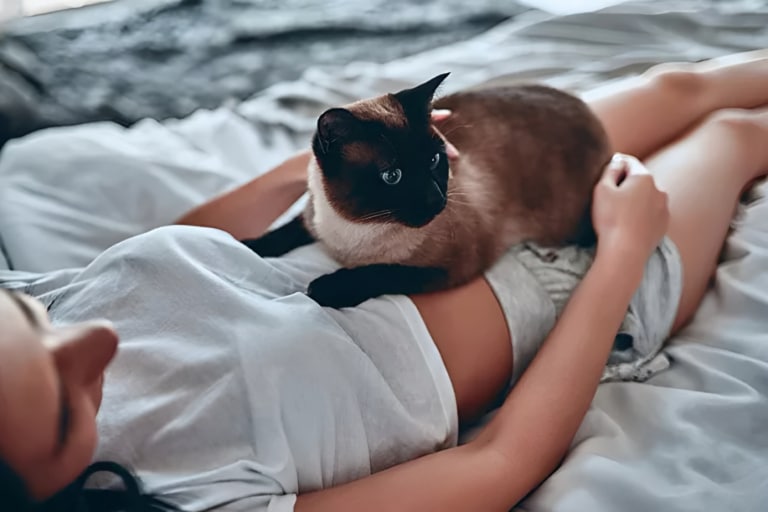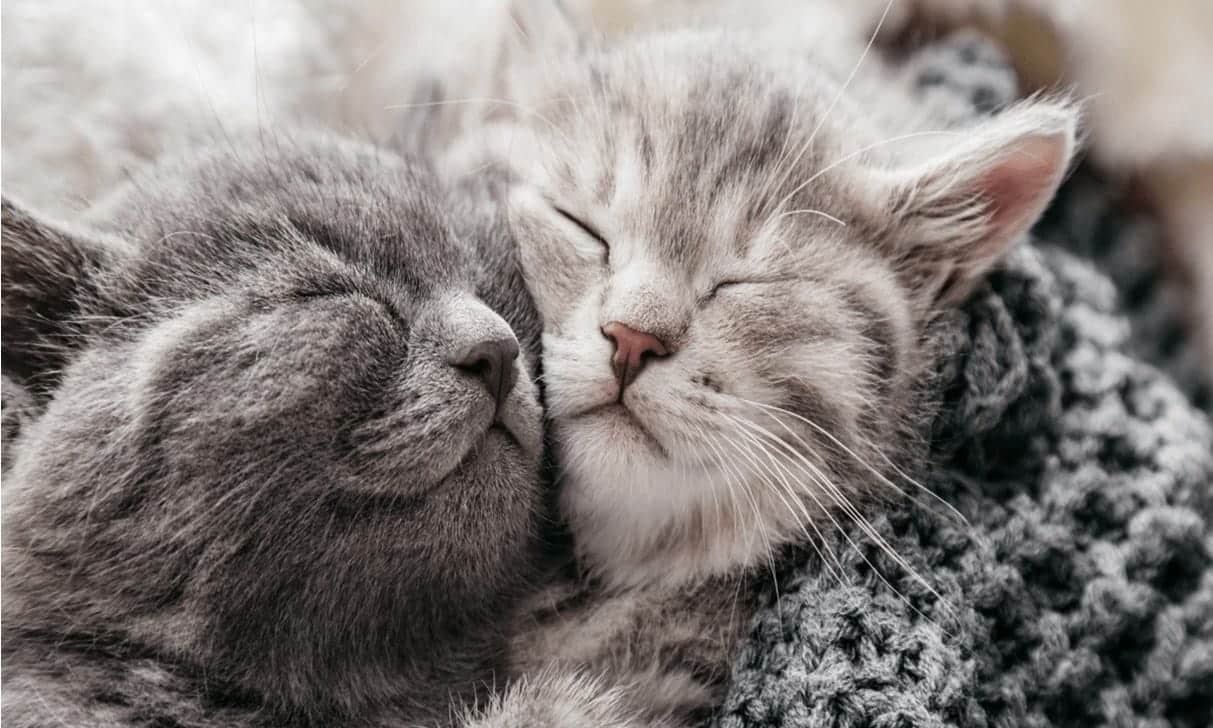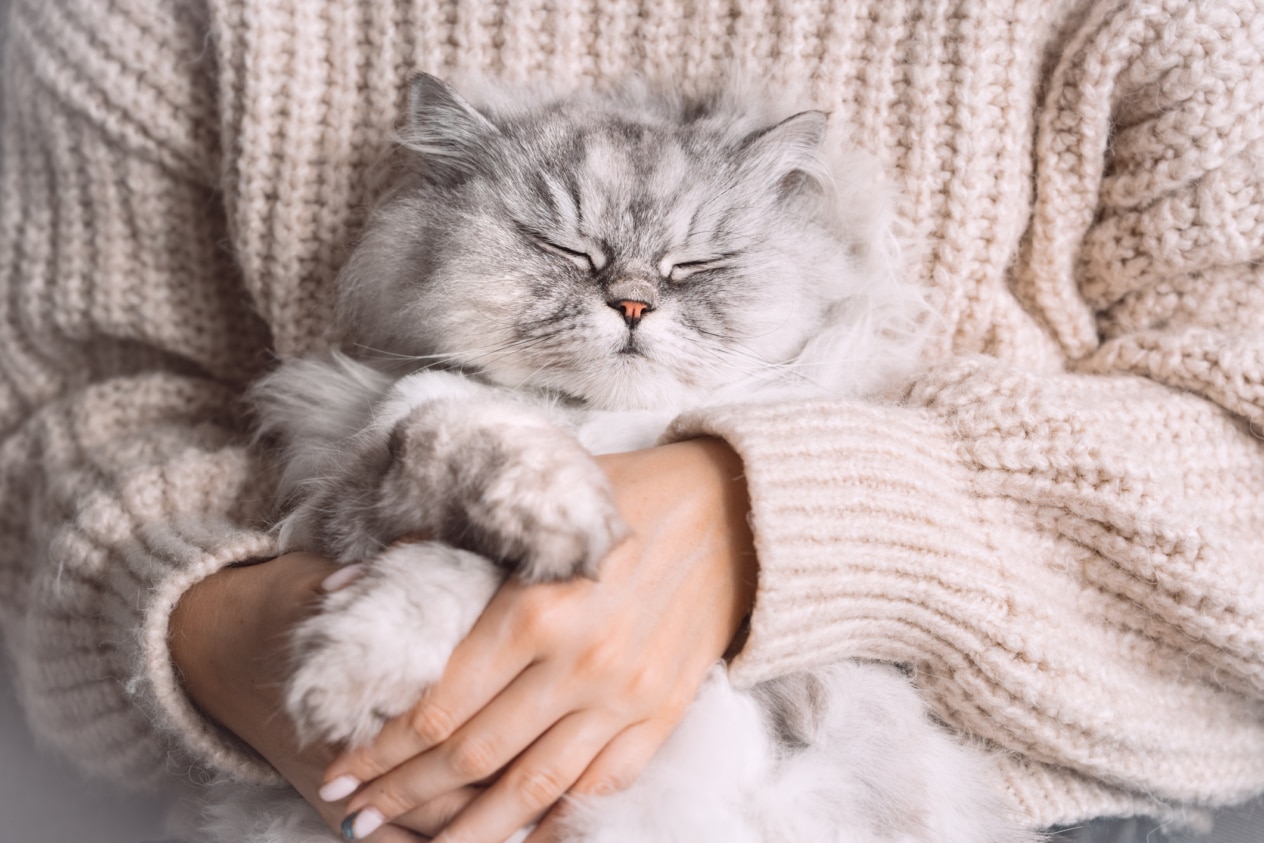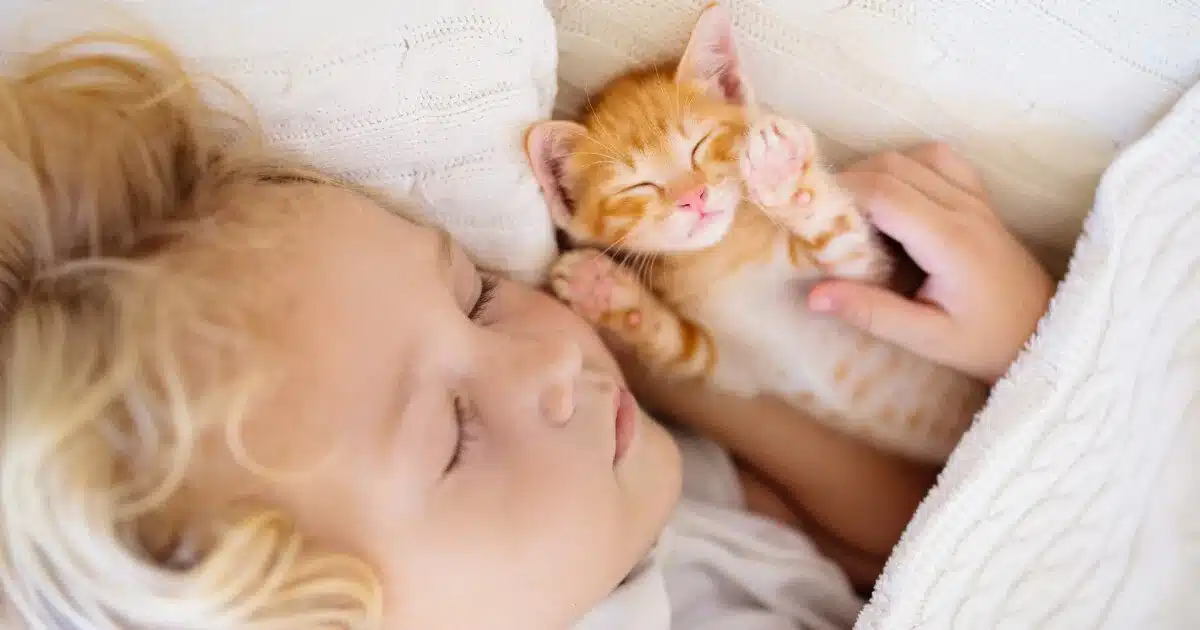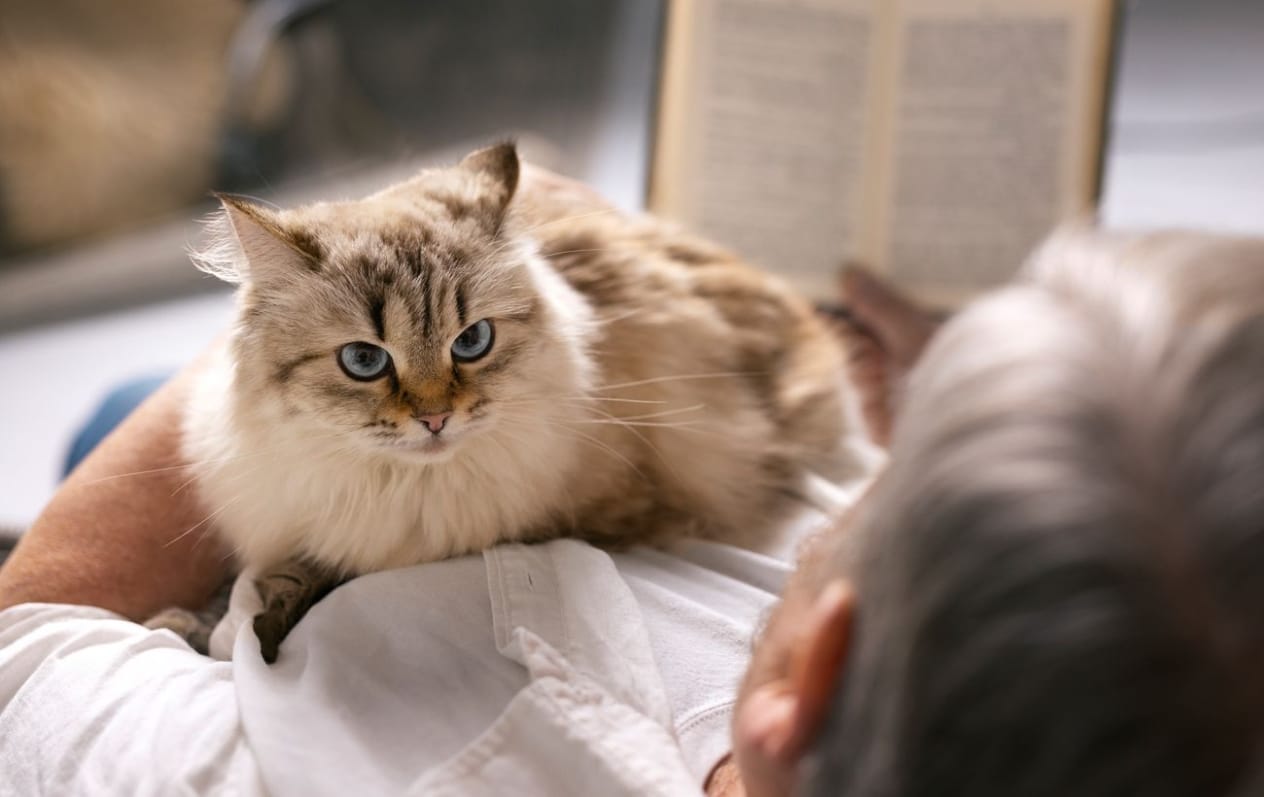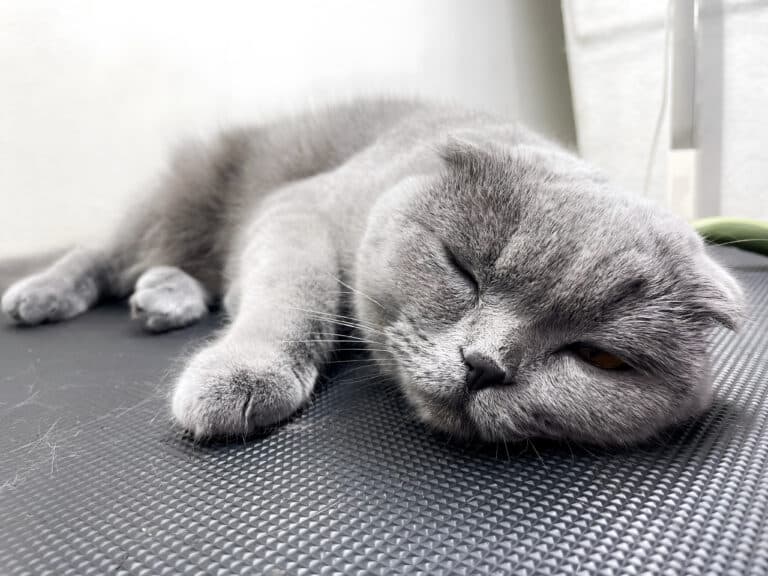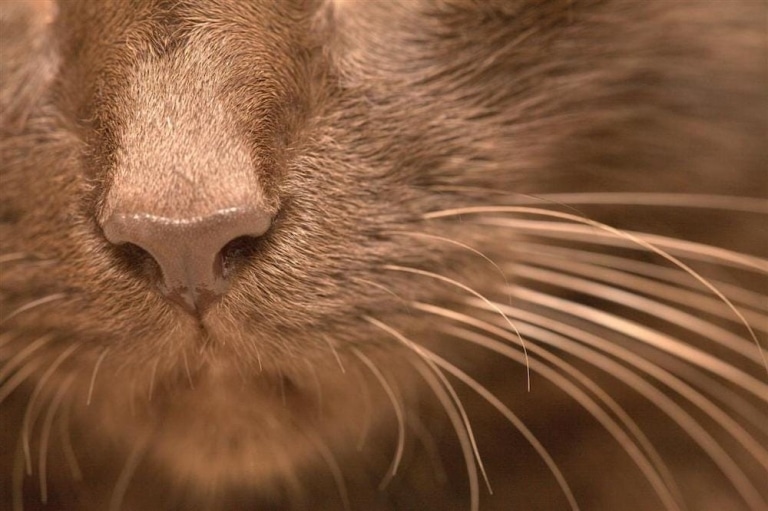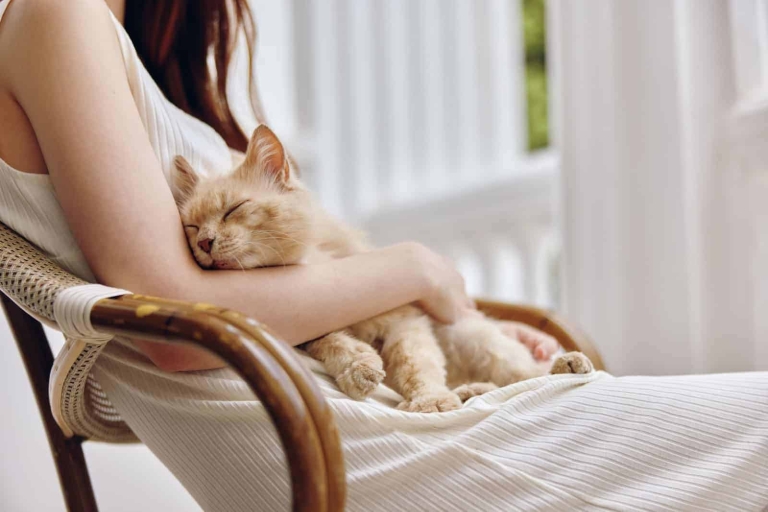Have you ever wondered who the true masters of relaxation are? Yes, it’s cats. They can sleep up to 16 hours a day, always choosing the warmest and coziest spots. But why do so many cats prefer sleeping on their owner? Is it just a coincidence or a whim of a fluffy companion? — this behavior has deep biological, psychological, and even medical reasons.
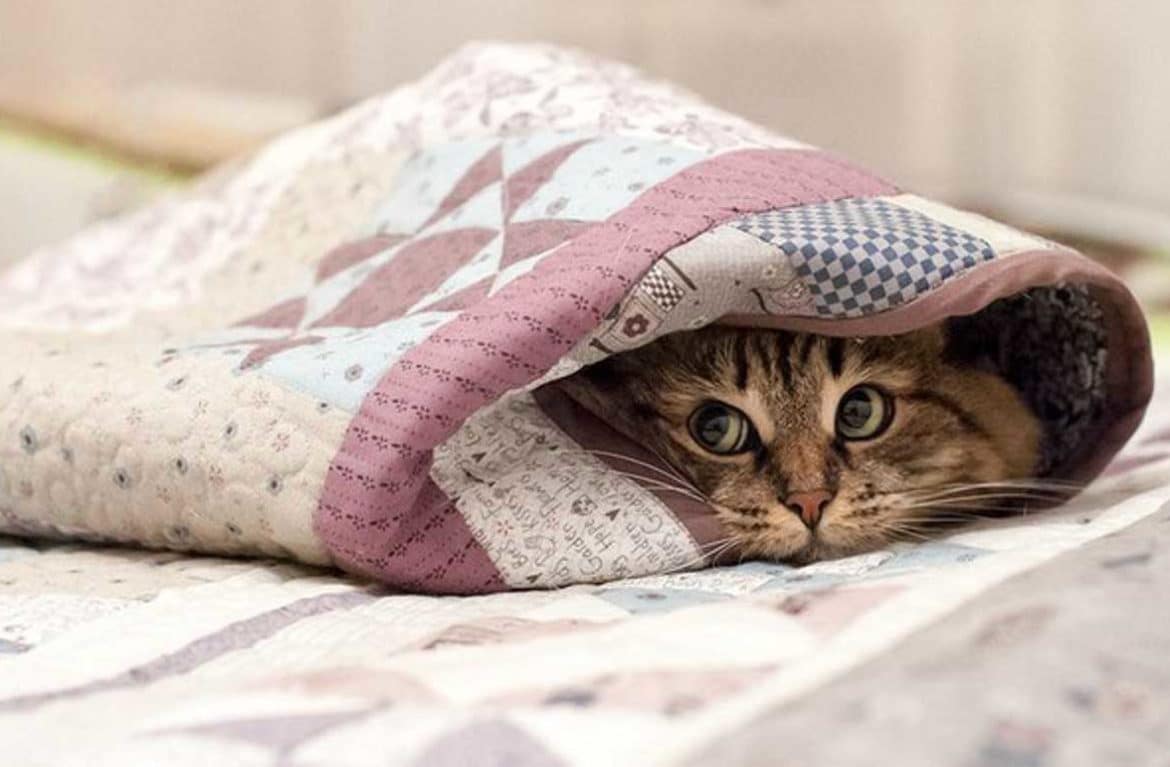
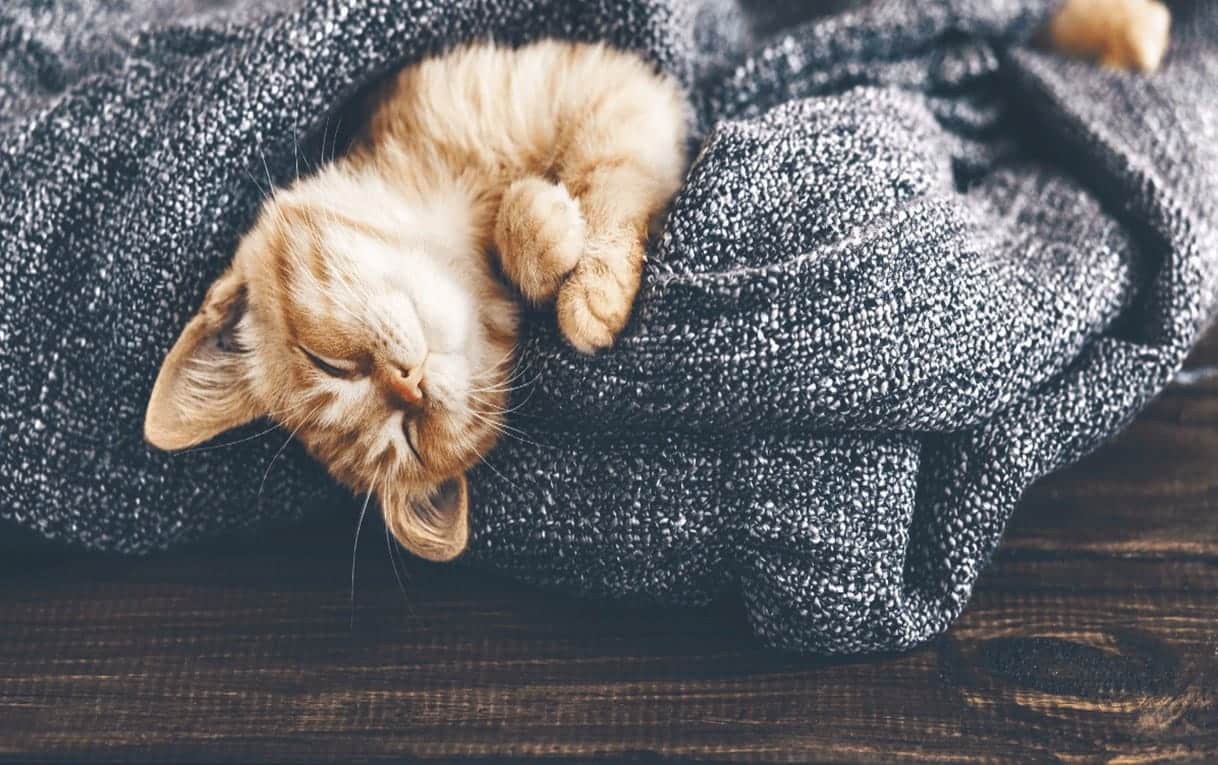
Instincts and Natural Needs: Why Do Cats Seek Warmth?
One of the main reasons cats sleep on their owners is their natural need for warmth. A cat’s body is designed to constantly seek heat sources since their ideal body temperature is 38-39°C, and maintaining it requires a lot of energy. Sleeping on their owner helps conserve warmth, as a human body acts like a living heater for them. Even though there may be plenty of soft and cozy spots in the house, cats often prefer their owner because their body temperature is stable and comfortable.
This habit also has an evolutionary explanation—wild cats used to sleep in groups, huddling together to retain warmth and feel safe. Even domesticated cats retain this instinct, as being close to a warm, living being during sleep provides them with comfort and a sense of security.
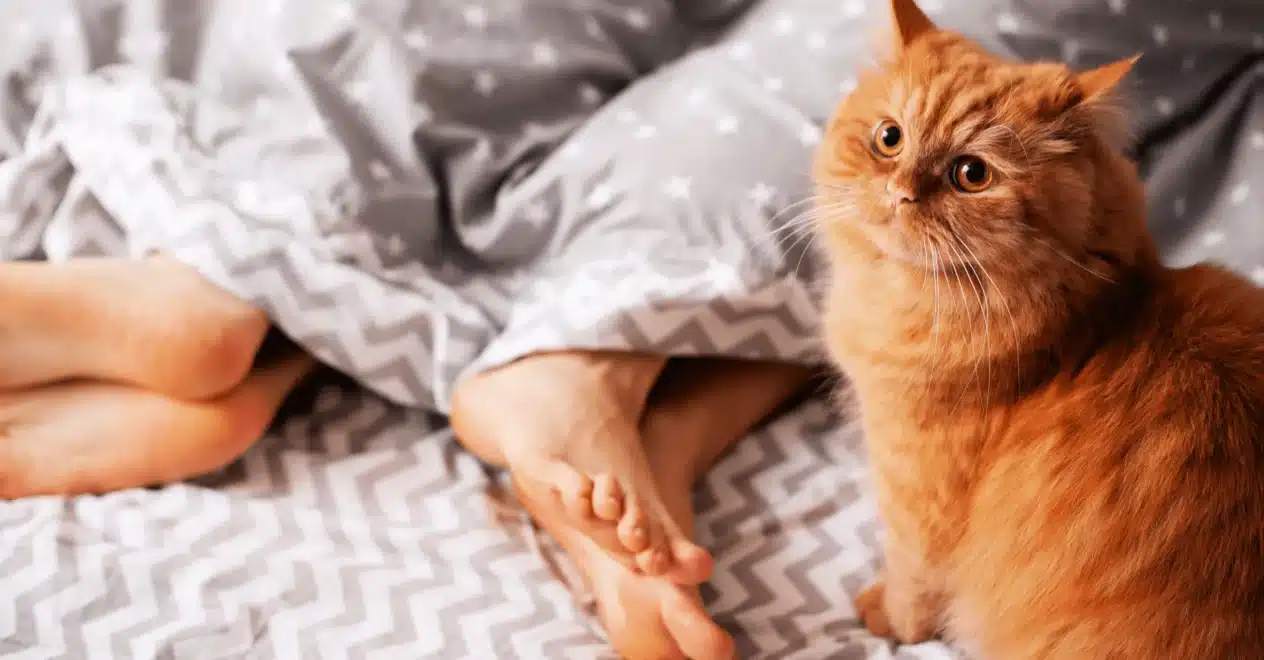
Psychological Aspect: Trust, Safety, and Attachment
For cats, sleeping on their owner is not just about warmth but also about trust and security. In the wild, cats always seek protected places to sleep because they are most vulnerable during rest. If your cat sleeps on you, it means they fully trust you and see you as a reliable protector. This is also a form of attachment.
While cats don’t always express emotions as openly as dogs, they show their affection through small gestures like this. They often choose a specific family member to sleep on, guided not only by trust but also by individual scents, voice tone, or even emotional connection. Some cats prefer people who are calmer or have a softer voice, as this gives them an added sense of security.
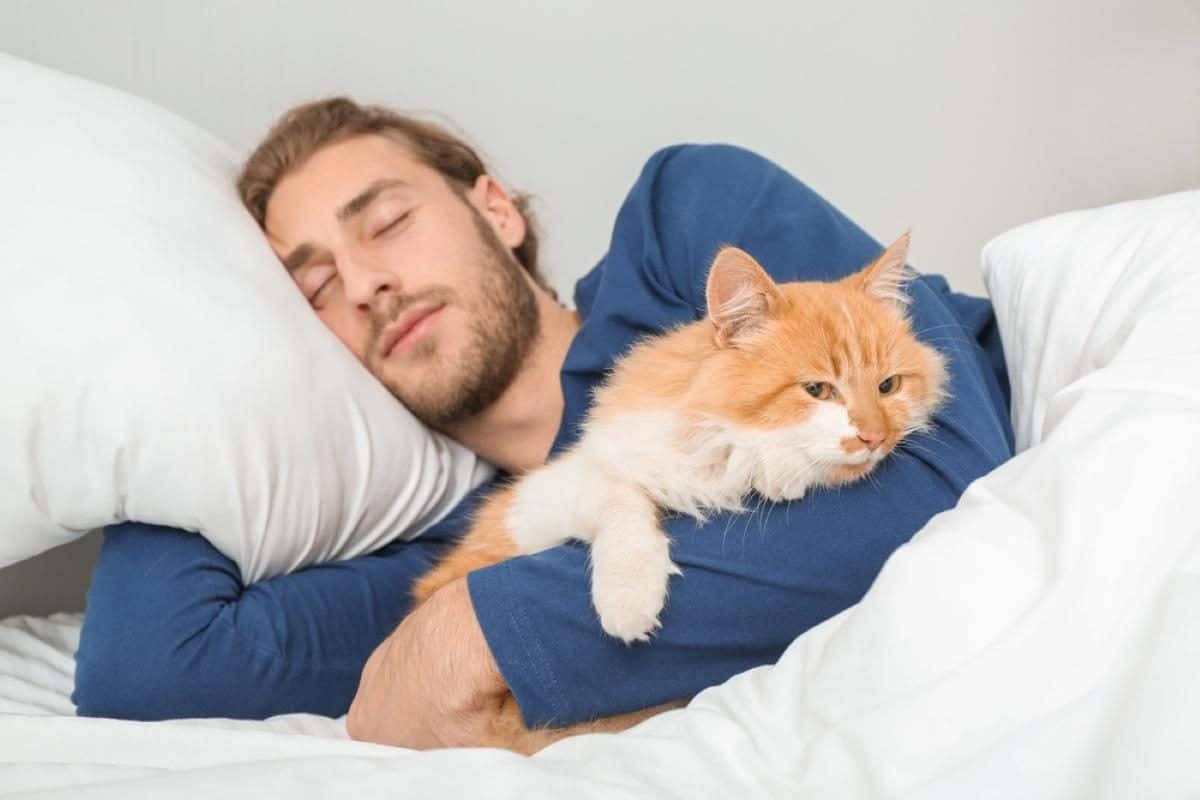
What Benefits Do Cats (and Their Owners) Get from Sleeping Together?
Sleeping together benefits not only cats but also their owners. Scientists have proven that a cat’s purring has a therapeutic effect: it can lower stress levels, reduce blood pressure, and even promote faster wound healing due to sound vibrations in the 25-150 Hz range. Additionally, contact with a cat during sleep can trigger the production of oxytocin, the “happiness hormone,” which improves a person’s emotional well-being.
Cats, in turn, also benefit from sharing sleep with their owners. Their presence helps calm them, reduce anxiety, and create a sense of security. Moreover, their body functions more efficiently when they sleep in warmth, which contributes to better metabolism and overall well-being.
Conclusion
So, cats sleep on their owners not just for warmth or out of habit. This behavior is a complex combination of an instinctive need for comfort, trust in their human, and even mutual emotional support. If your feline friend regularly curls up on your chest or lap, it means they are not just seeking warmth but also see you as part of their little family. It’s a special sign of attachment that reflects true trust from your fluffy companion.

